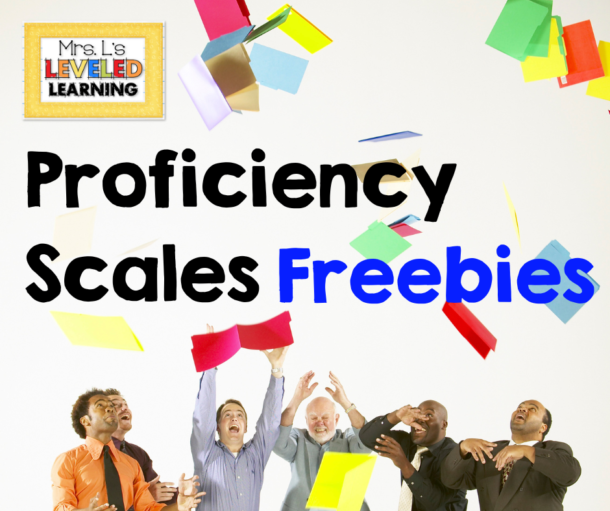I had the pleasure and sometimes anxiety of working with gifted and advanced students for 5 1/2 years in my last school district. It was a unique position because I was traveling between two Title I schools where the qualified gifted populations were small, and sometimes struggling to sustain services. In order to keep classes large enough, we experimented with adding high-ability students who weren't scoring high enough to have “gifted” status, but seemed to have a lot of potential to advance.
When I started using learning goals and scales with my 4th & 5th grade multiage math classes, I felt like they were helping me more than the kids. Defining each level of a scale meant that I could quickly plan differentiation for the limited class time I had. Having students who were gifted and high, for two grade levels meant that I had a wide variety of skills, even in these advanced classes.
After we established a routine of referring to and tracking the kid's progress in scales, I saw the benefits for them as well.
1. Accountability- Unfortunately not all children capable of learning quickly are motivated to work! There are multiple reasons and theories why this can be true, but if you've worked with gifted kids, you know that they aren't always the best students. Finishing assignments, staying organized, coping with challenges or perfectionism, emotional or social troubles, can distract them from achieving as much as they are capable of, or mastering the skills that you are interested in having them focus on (primarily the standards).
2. Differentiation- Sometimes teachers assume that a qualified gifted or talented student will be good at everything. They may even assume that they don't have to worry about their progress all year because they will do fine no matter what – not so! These kids are as varied in skills and strengths as anyone else in their classroom and have to be treated as individuals. Even a student who is “gifted” in a specific area, such as math or language arts, they may not have mastered every skill in that area. I had gifted language kids who had amazing vocabularies and profound comprehension, but they really struggled to write fluently. I had math students who were so quick with figures and mental computations, but struggled with word problem application or isolated topics like algebra or geometry. They need differentiation too, and being able to specifically identify their areas of need saves valuable classroom teaching time and can keep them motivated. They get the chance to consistently work on things that they really haven't mastered. This could mean that they move into a scale from the next grade level, or deepen their knowledge and application of grade-level skills.
3. Affirmation! Most gifted and talented kids know that they are smart, but outside of individual projects they don't often have opportunities to display how much they've learned! Sometimes a really advanced student will enter your room already knowing most of the grade-level curriculum, meaning that the usual curriculum and assessments aren't going to show their true growth as a learner. These kids deserve resources to keep them moving forward just as much as any other student. I have found that the scales, which include advanced skills, help these students to pin point where they are going next and affirm that they are learning new things too!
If you'd like to learn more about using Learning Goals with Scales in your room, there is a quick video tutorial available on my YouTube Playlist –
How to Use Learning Goals with Marzano Scales.
Below are examples of the Student Portfolio Binders I used to track and sort students' Assessments and work. You can get these Portfolios by following the link to my “FREEBIES” page. Grades 3-8




